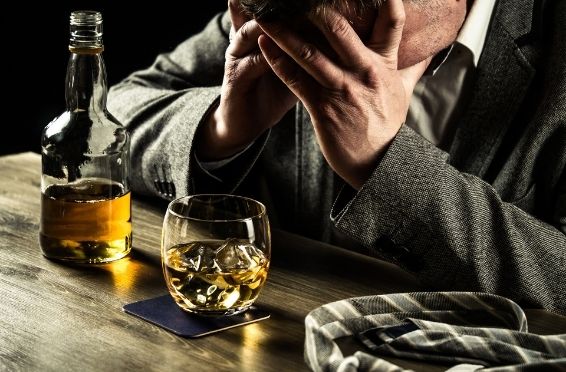While alcohol is a legal substance that is socially acceptable, for those individuals suffering from alcohol misuse, alcohol use disorder, or alcoholism, the withdrawal symptoms from alcohol and going through alcohol detox can be much worse than any illicit or illegal substance. While the withdrawal from heroin and opioids and many other legal and illegal substances can be difficult, painful, and uncomfortable, unlike many of those substances, alcohol withdrawal can be fatal.
What do you need to know about issues with alcohol and going through alcohol withdrawal?
The first important thing to know and to understand is that someone does not necessarily need to drink every day or have regularly drunk for a very long time to suffer from alcohol withdrawal. Heavy drinking for years, months, or even weeks can cause alcohol withdrawal and a need for detox. This includes having both physical and mental issues when stopping drinking. Alcohol withdrawal symptoms can even occur after bouts of heavy drinking even when an individual doesn’t stop entirely, but simply cuts back on the amount of alcohol that is consumed. This means that alcohol withdrawal can occur even if someone is still drinking but has attempted to cut back on the amount.
Symptoms of alcohol withdrawal can range from mild to moderate to severe.
Specific symptoms of alcohol withdrawal include:
- Anxiety
- Irritability
- Depression
- Nightmares
- Difficulty thinking clearly or feeling “foggy”
- Headache
- Nausea
- Vomiting
- Insomnia
- Shaky hands or difficulty balancing
- Sweating
- High blood pressure
- Racing heart or elevated heart rate
- Fever
- Hallucinations (these can occur between 12 to 24 hours after last drink)
- Seizures (these can occur within the first two days of stopping drinking)
- Delirium Tremens or DTs (DTs typically start 48 hours to 72 hours after the last drink. DTs are severe alcohol withdrawal symptoms that can include vivid hallucinations and delusions.)
One of the issues surrounding alcohol withdrawal when related to its medical complications, and especially if an individual experiences hallucinations, seizures, or DTs, is the danger of dealing with these physical and mental issues outside of a healthcare facility without 24-hour medical care. Individuals that suffer these symptoms often cause further physical damage due to falling, hitting their heads, breaking bones, or having other underlying medical issues arise.
While mild alcohol withdrawal may not be fatal, medical professionals still suggest to people that refuse to go to detox that someone needs to be with them to watch them and make sure their symptoms don’t get worse. Even in this scenario, healthcare professionals suggest that an individual going through moderate alcohol withdrawals see a doctor daily to help with medical oversight and stabilization. However, regardless of whether someone’s alcohol withdrawal symptoms are mild, moderate, or severe, due to the dangers and potentially fatal nature of alcohol withdrawals, anyone dealing with a drinking issue, alcohol misuse, alcohol use disorder or alcoholism should enter a medical detox facility or hospital setting to mitigate risk and increase personal safety. Additionally, entering detox for alcohol will allow for the necessary medical and clinical support, as well as making sure the alcohol withdrawal and detox process is as comfortable as possible, supported using necessary medications.
Types of medications used for alcohol withdrawal and during alcohol detox are:
- Benzodiazepines
- Phenobarbital
- Anticonvulsants
- Clonidine and beta-blockers
- Antipsychotics
- Over the Counter (OTC) medications
An inpatient medical detox for alcohol withdrawal mitigates risk for the patient and offers a medical, clinical, and therapeutic recovery-friendly environment. Entering a detox for alcohol, alcohol misuse, alcohol addiction, or alcoholism offer 24-hour medical care, medications, supervision, and moderating to make sure the individual is supported, care for, respected, and set up with all necessary aftercare treatment and/or support so that they hopefully won’t ever need to suffer from alcohol withdrawal again.
If you or someone you know needs help for addiction or co-occurring disorders, please give us a call. Innovo Detox offers the latest in evidence-based medical, psychiatric, and clinical care for those in need of detox and medical stabilization in Pennsylvania and the surrounding Mid-Atlantic area. If we aren’t the best fit for you or a loved one, we will take the necessary time to work with you to find a detox, rehab, treatment center or provider that better fits your needs. Please give us a call at (717) 619-3260 or email our team at info@innovodetox.com. For more information on our company or services, please visit our website at www.innovodetox.com.

